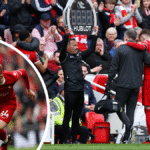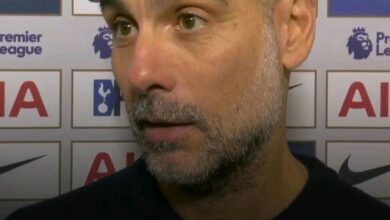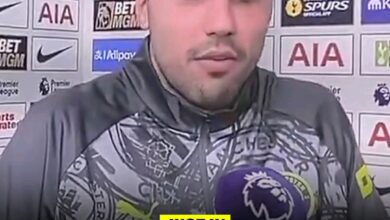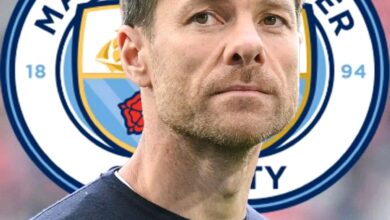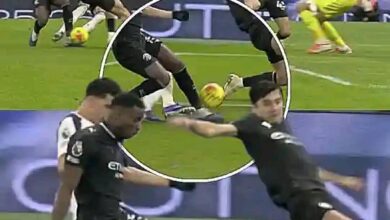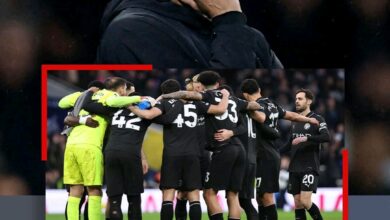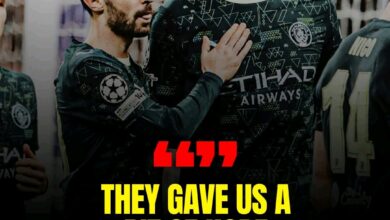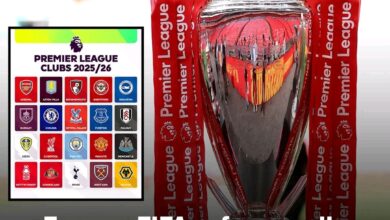Best game all season: Liverpool star was even better than Salah & Gravenberch

The lights at Anfield burned brighter than ever that night, the kind of brightness that tells you something special is about to happen. Liverpool had been drowning in frustration for weeks, losing six of their last seven games, their confidence hanging by a thread. Arne Slot, the new man in charge, had watched his dream start turn into a storm of criticism and doubt. But under those red lights, with the Kop singing louder than the pain of the past month, something began to change. Liverpool were finally back home, and they had Aston Villa to face. A team with courage, with Unai Emery in charge, and a record that made them one of the most dangerous visitors in the Premier League. Yet on that night, Liverpool played like a side that remembered who they were. They won 2-0, a scoreline that only told half the story.
Before kickoff, the tension in the stadium was almost too much to breathe in. Every Liverpool fan knew how important this game was. The Reds had slipped away from the top-four fight, their rhythm shattered, their energy gone. Salah looked tired, Gravenberch looked lost, and Mac Allister looked like a shadow of the player who once conquered the world in Qatar. But football, as always, is built for nights like this—nights of redemption, of revival, of remembering your greatness.
From the very first whistle, there was something different about Liverpool. The pressing returned, the passing looked crisp, and there was that hunger in their eyes again. Aston Villa, dangerous as ever under Emery, didn’t come to sit back. They came to attack. In the early minutes, Morgan Rogers almost silenced the crowd when his strike rattled the crossbar. It was a reminder that Anfield could still be punished if Liverpool weren’t careful. But somehow, even after that moment of fear, the Reds stood taller. It was like that close call woke them up.
Arne Slot stood on the touchline, shouting, clapping, urging his men forward. He knew this was more than just three points—it was about pride, belief, and sending a message that Liverpool would not crumble. Hugo Ekitike thought he had given Liverpool the lead when his header found the back of the net, but the flag went up. Offside. The Kop groaned, but the energy didn’t fade. It felt like one of those nights where Liverpool would keep knocking until the door broke open.
And then came the moment that reminded everyone why Mohamed Salah is still Liverpool’s king.
Aston Villa were trying to play out from the back, passing the ball casually between their defenders. Emiliano Martinez, the World Cup winner, was about to pass to his teammate, but his touch betrayed him. The ball rolled into Salah’s path, and the Egyptian didn’t even hesitate. One calm touch, one quick finish, and the ball was in the back of the net. Anfield exploded. 250 goals in the famous red shirt. Two hundred and fifty moments of history, passion, and greatness. Salah didn’t even celebrate wildly—he just smiled, arms stretched, eyes looking up. He knew what this meant. It wasn’t just another goal; it was a message to everyone who thought he was finished.
The Kop roared his name again, louder than ever before. “Mo Salah! Mo Salah! Mo Salah running down the wing!” It felt like the anthem of a man reborn. The crowd didn’t just cheer; they believed again. For the first time in weeks, Liverpool fans saw the rhythm, the connection, the spark. Salah was dangerous again, fearless again. Every time he touched the ball, Lucas Digne, Villa’s left-back, looked terrified. Salah’s dribbles were electric, his turns sharp, his body language different. The legend wasn’t done yet—not even close.
At halftime, the atmosphere was full of pride but also nerves. Liverpool had the lead, but the job wasn’t finished. Slot walked into the dressing room and looked at his players with fire in his eyes. He told them they needed to kill the game, to show the world that this win was not luck—it was Liverpool’s identity returning. And the team listened.
Thirteen minutes into the second half, Ryan Gravenberch, the tall Dutch midfielder who had been struggling to find his place in the Premier League, took matters into his own hands. He picked up the ball in space, looked up, and unleashed a powerful shot from distance. It wasn’t the cleanest strike, but sometimes football rewards bravery. The ball took two wild deflections, spinning past Martinez into the net. Anfield went wild again. 2-0. Relief, joy, redemption—all mixed in one.
Gravenberch ran towards the crowd, arms open, screaming with the passion of a player who had just silenced his critics. For weeks, people said he wasn’t good enough, that he was too slow, too casual, too inconsistent. But that night, he looked like a different man. Confident, creative, and brave. He wasn’t just playing football—he was making a statement.
For Salah and Gravenberch, it was a night of rediscovery. Both had been under pressure. Salah, for not scoring enough, and Gravenberch, for not living up to expectations. But in 90 minutes, both reminded everyone that their quality doesn’t disappear—it only hides, waiting for the right night to shine. Salah’s dribbles were sharp, his passes clean, and his leadership clear. Gravenberch controlled the tempo in midfield, showing composure and balance that made it look like he was back in Amsterdam wearing Ajax colors again.
Yet as brilliant as both men were, there was someone else on the pitch who quietly stole the show. A player who didn’t score but orchestrated everything. Alexis Mac Allister.
The Argentine midfielder, wearing number 10, played like the champion he is. He was everywhere—passing, tackling, creating, leading. He assisted Gravenberch’s goal with calm precision and showed intelligence that lifted the whole team. It was the kind of performance that reminds you why Liverpool signed him from Brighton, why he became a World Cup winner, and why Arne Slot trusts him so deeply.
Mac Allister didn’t just play well—he played like a conductor, controlling the rhythm of Liverpool’s game. He touched the ball 64 times, completed 48 of his 51 passes, and created three big chances. Every time Liverpool looked lost, he brought control. Every time Villa tried to counter, he broke them down. He wasn’t loud or flashy, but he was everywhere, guiding his teammates through the storm.
Off the ball, Mac Allister was a warrior. He won duels, made interceptions, and refused to let Villa dominate the midfield. It was a complete performance, the kind of display that makes teammates look better just by being near him. When Gravenberch scored, Mac Allister’s smile told the story—he had set it up, he had seen the space, he had made it possible. And when Salah scored his record goal, Mac Allister was the first to run over and hug him. That’s who he is—a leader without shouting, a fighter without arrogance.
Will Rooney, the journalist watching from the press box, summed it up perfectly. He gave Mac Allister a 9 out of 10, higher than Salah or Gravenberch. He wrote that Mac Allister “looked much more like his usual self” and that he “kept on showing his class.” It was a night when numbers didn’t lie. Salah and Gravenberch may have scored, but Mac Allister made the whole team breathe again.
The stats said it all. He creaed more chances than any other player, he completed more passes than anyone else, and he fought harder than many expected. Liverpool had been missing that control in recent games, and on this night, Mac Allister delivered it perfectly.
When the final whistle blew, Anfield stood up in applause. The fans weren’t just celebrating a win—they were celebrating the return of belief. For weeks, it felt like Liverpool had forgotten who they were. But under those bright lights, with the crowd singing “You’ll Never Walk Alone,” they found themselves again. Salah smiled, Gravenberch lifted his hands in gratitude, and Mac Allister quietly walked toward the Kop, clapping the fans who had never stopped believing.
Arne Slot hugged his players one by one. He knew how big this was. It wasn’t just three points—it was the beginning of something. He had been questioned, doubted, even criticized for his tactics and team choices. But that night, everything clicked. The energy was back, the chemistry was real, and Liverpool were alive again.
Aston Villa, to their credit, fought hard. Morgan Rogers, Watkins, and Bailey all tried to break Liverpool’s line, but the Reds’ defense stood firm. Virgil van Dijk led by example, organizing, shouting, and tackling like the captain he is. Mamardashvili, the new goalkeeper, made some strong saves and looked calm between the posts. The whole team fought together, played together, believed together. And that’s what made it beautiful.
The match wasn’t just about goals or stats. It was about moments—the look on Salah’s face after scoring number 250, the roar of the Kop after Gravenberch’s goal, and the calm authority of Mac Allister running the show. It was about redemption, belief, and what happens when Liverpool remember the meaning of their badge.
As the fans left the stadium, the feeling was clear: Liverpool were back. There was still work to do, still points to win, but this felt like the night that changed everything.
For Salah, it was proof that class is permanent. For Gravenberch, it was a step toward becoming the player everyone hoped he would be. And for Mac Allister, it was a masterpiece—a reminder that leadership doesn’t always shout, sometimes it just performs.
Liverpool’s next fixtures would be tough, but this win had changed the energy. The confidence, the rhythm, the fight—it was all back. Anfield had witnessed too many dark nights lately, but on this one, it shone like it always has, filled with noise, love, and unbreakable spirit.
Football has a way of giving back when you least expect it, and for Liverpool, this was that gift. A 2-0 win that will be remembered not just for the goals but for the rebirth it symbolized.
And somewhere in that moment, as Salah waved to the fans and Mac Allister smiled quietly to himself, you could almost hear the whisper echoing through the stands—Liverpool are back, and they’re not done yet.




